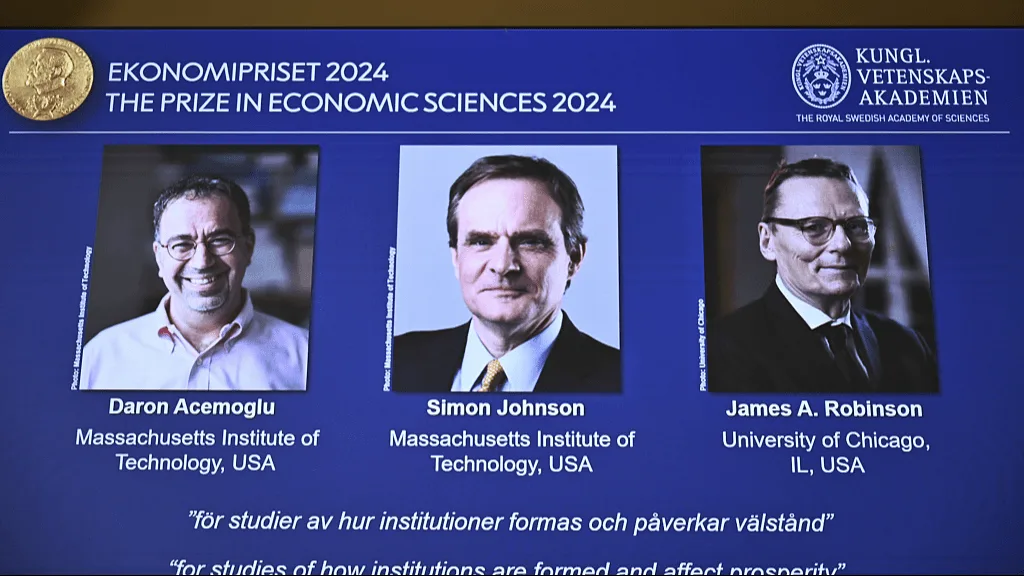The Royal Swedish Academy of Sciences has decided to award the Sveriges Riksbank Prize in Economic Sciences in memory of Alfred Nobel for 2024 to Daron Acemoglu, Simon Johnson and James A. Robinson "for their studies on how institutions are shaped and how they affect prosperity".
This year's laureates in the field of economic sciences (Fifty-seven-year-old Acemoglu is a professor at the Massachusetts Institute of Technology (MIT), as is sixty-one-year-old Johnson. Robinson, 64, is a professor at the University of Chicago) have demonstrated the importance of social institutions for the prosperity of a country. Societies with poor laws and institutions that exploit the population do not generate growth or change for the better. The laureates' research helps us understand why.
When Europeans colonized large parts of the globe, the institutions in these societies changed. Sometimes it was dramatic, but it was not the same everywhere. In some places, the goal was to exploit the indigenous population and extract resources for the benefit of the colonizers. Elsewhere, colonizers created inclusive political and economic systems for the long-term benefit of European immigrants.
The laureates showed that one explanation for the differences in countries' prosperity is the social institutions that were put in place during colonization. In countries that were poor at the time of colonization, inclusive institutions were often put in place, which over time led to a general well-being of the population. This is an important reason why former colonies that were once rich are now poor, and vice versa.
Some countries find themselves trapped in a situation of exclusionary institutions and low economic growth. The introduction of inclusive institutions would bring long-term benefits for all, but extractive institutions bring short-term gains for those in power. As long as the political system guarantees that they will remain in power, no one will believe their promises of future economic reforms. Therefore, according to the laureates, there is no improvement.
However, this inability to credibly promise positive change may also explain why democratisation sometimes occurs. When revolution threatens, people in power face a dilemma. They would prefer to stay in power and try to reassure the masses by promising economic reforms, but the population is unlikely to believe that they will not return to the old system once the situation calms down. In the end, the only option may be to hand over power and establish democracy.
"Reducing the huge income gaps between countries is one of the greatest challenges of our time. The laureates have demonstrated the importance of social institutions in achieving this goal," Says Jakob Svensson, Chairman of the Committee for the Prize in Economic Sciences.
nobelprize.org/ gnews - RoZ
PHOTO - CGTN



